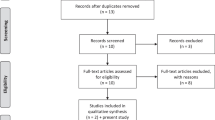Abstract
Objective
Eradication of Helicobacter pylori is an important treatment strategy in peptic ulcer patients. Current regimens of eradication consist of proton pump inhibitor (PPI) and two antibiotics. The principal enzyme involved in PPIs metabolism is CYP2C19, which exhibits an interindividual variability of activity, mainly due to genetic polymorphism. Two alleles (CYP2C19*2 and CYP2C19*3), responsible for slow PPIs metabolism, were previously associated with higher efficacy of eradication. Recently, a novel CYP2C19 gene variant (CYP2C19*17), associated with faster metabolism of CYP2C19 substrates, was described. In the present study, a potential association between CYP2C19*17 allele and lower H. pylori eradication efficacy was tested in a group of peptic ulcer patients.
Methods
A total of 125 peptic ulcer patients, positive for H. pylori infection, were treated with triple therapy (pantoprazole+amoxicillin+metronidazole). Subsequently, the patients were divided into two groups (group 1 – success, and group 2 – failure of eradication after therapy) and genotyped for the presence of CYP2C19 variant alleles (*2, *3, and *17).
Results
Frequency of CYP2C19 alleles in two groups of patients were: 56.4 versus 65 (p=0.060) for *1, 15.4 versus 5.3 (p=0.015) for *2, and 28.2 versus 25.5 (p=0.663) for *17 allele, respectively. CYP2C19*3 was not detected in the evaluated population. No significant differences in frequency nor distribution of *17 allele were found between two groups of patients. CYP2C19*2 allele was associated with successful H. pylori eradication (p<0.02), *2 allele carriers were found to be over 4-times more prone to the treatment compared to *1/*1 homozygotes (OR=4.2, p=0.015).
Conclusion
Our results suggest that, contrary to CYP2C19*2, CYP2C19*17 allele has no impact on efficacy of H. pylori eradication in peptic ulcer patients treated with pantoprazole.
Similar content being viewed by others
References
Andersson T, Regardh CG, Dahl-Puustinen ML, Bertilsson L (1990) Slow omeprazole metabolizers are also poor S-mephenytoin hydroxylators. Ther Drug Monit 12:415–416. 3
Andersson T, Flockhart DA, Goldstein DB, Huang SM, Kroetz DL, Milos PM, Ratain MJ, Thummel K (2005) Drug-metabolizing enzymes: evidence for clinical utility of pharmacogenomic tests. Clin Pharmacol Ther 78:559–581
Boyanova L, Mentis A, Gubina M, Rozynek E, Gosciniak G, Kalenic S, Goral V, Kupcinskas L, Kantarceken B, Aydin A, Archimandritis A, Dzierzanowska D, Vcev A, Ivanova K, Marina M, Mitov I, Petrov P, Ozden A, Popova M (2002) The status of antimicrobial resistance of Helicobacter pylori in eastern Europe. Clin Microbiol Infect 8:388–396
Furuta T, Shirai N, Takashima M, Xiao F, Hanai H, Sugimura H, Ohashi K, Ishizaki T, Kaneko E (2001) Effect of genotypic differences in CYP2C19 on cure rates for Helicobacter pylori infection by triple therapy with a proton pump inhibitor, amoxicillin, and clarithromycin. Clin Pharmacol Ther 69:158–168
Furuta T, Shirai N, Watanabe F, Honda S, Takeuchi K, Iida T, Sato Y, Kajimura M, Futami H, Takayanagi S, Yamada M, Ohashi K, Ishizaki T, Hanai H (2002) Effect of cytochrome P4502C19 genotypic differences on cure rates for gastroesophageal reflux disease by lansoprazole. Clin Pharmacol Ther 72:453–460
Furuta T, Shirai N, Sugimoto M, Nakamura A, Hishida A, Ishizaki T (2005) Influence of CYP2C19 pharmacogenetic polymorphism on proton pump inhibitor-based therapies. Drug Metab Pharmacokinet 20:153–167
Gawronska-Szklarz B, Wrzesniewska J, Starzynska T, Pawlik A, Safranow K, Ferenc K, Drozdzik M (2005) Effect of CYP2C19 and MDR1 polymorphisms on cure rate in patients with acid-related disorders with Helicobacter pylori infection. Eur J Clin Pharmacol 61:375–379
Goldstein JA, Faletto MB, Romkes-Sparks M, Sullivan T, Kitareewan S, Raucy JL, Lasker JM, Ghanayem BI (1994) Evidence that CYP2C19 is the major (S)-mephenytoin 4′-hydroxylase in humans. Biochemistry 33:1743–1752
Goldstein JA, Blaisdell J (1996) Genetic tests which identify the principal defects in CYP2C19 responsible for the polymorphism in mephenytoin metabolism. Methods Enzymol 272:210–218
Grayson ML, Eliopoulos GM, Ferraro MJ, Moellering Jr RC (1989) Effect of varying pH on the susceptibility of Campylobacter Eliopoulos GM pylori to antimicrobial agents. Eur J Clin Microbiol Infect Dis 8:888–889
Gustincich S, Manfioletti G, Del Sal G, Schneider C, Carninci P (1991) A fast method for high-quality genomic DNA extraction from whole human blood. Biotechniques 11:298–300, 302
Kupfer A, Preisig R (1984) Pharmacogenetics of mephenytoin: a new drug hydroxylation polymorphism in man. Eur J Clin Pharmacol 26:753–759
Scott D, Weeks D, Melchers K, Sachs G (1998) The life and death of Helicobacter pylori. Gut 43 Suppl 1:S56–S60
Shimatani T, Inoue M, Kuroiwa T, Horikawa Y, Mieno H, Nakamura M (2003) Effect of omeprazole 10 mg on intragastric pH in three different CYP2C19 genotypes, compared with omeprazole 20 mg and lafutidine 20 mg, a new H2-receptor antagonist. Aliment Pharmacol Ther 18:1149–1157
Sim SC, Risinger C, Dahl ML, Aklillu E, Christensen M, Bertilsson L, Ingelman-Sundberg M (2006) A common novel CYP2C19 gene variant causes ultrarapid drug metabolism relevant for the drug response to proton pump inhibitors and antidepressants. Clin Pharmacol Ther 79:103–113
Yamazaki H, Inoue K, Shaw PM, Checovich WJ, Guengerich FP, Shimada T (1997) Different contributions of cytochrome P450 2C19 and 3A4 in the oxidation of omeprazole by human liver microsomes: effects of contents of these two forms in individual human samples. J Pharmacol Exp Ther 283:434–442
Author information
Authors and Affiliations
Corresponding author
Rights and permissions
About this article
Cite this article
Kurzawski, M., Gawrońska-Szklarz, B., Wrześniewska, J. et al. Effect of CYP2C19*17 gene variant on Helicobacter pylori eradication in peptic ulcer patients. Eur J Clin Pharmacol 62, 877–880 (2006). https://doi.org/10.1007/s00228-006-0183-2
Received:
Revised:
Accepted:
Published:
Issue Date:
DOI: https://doi.org/10.1007/s00228-006-0183-2




